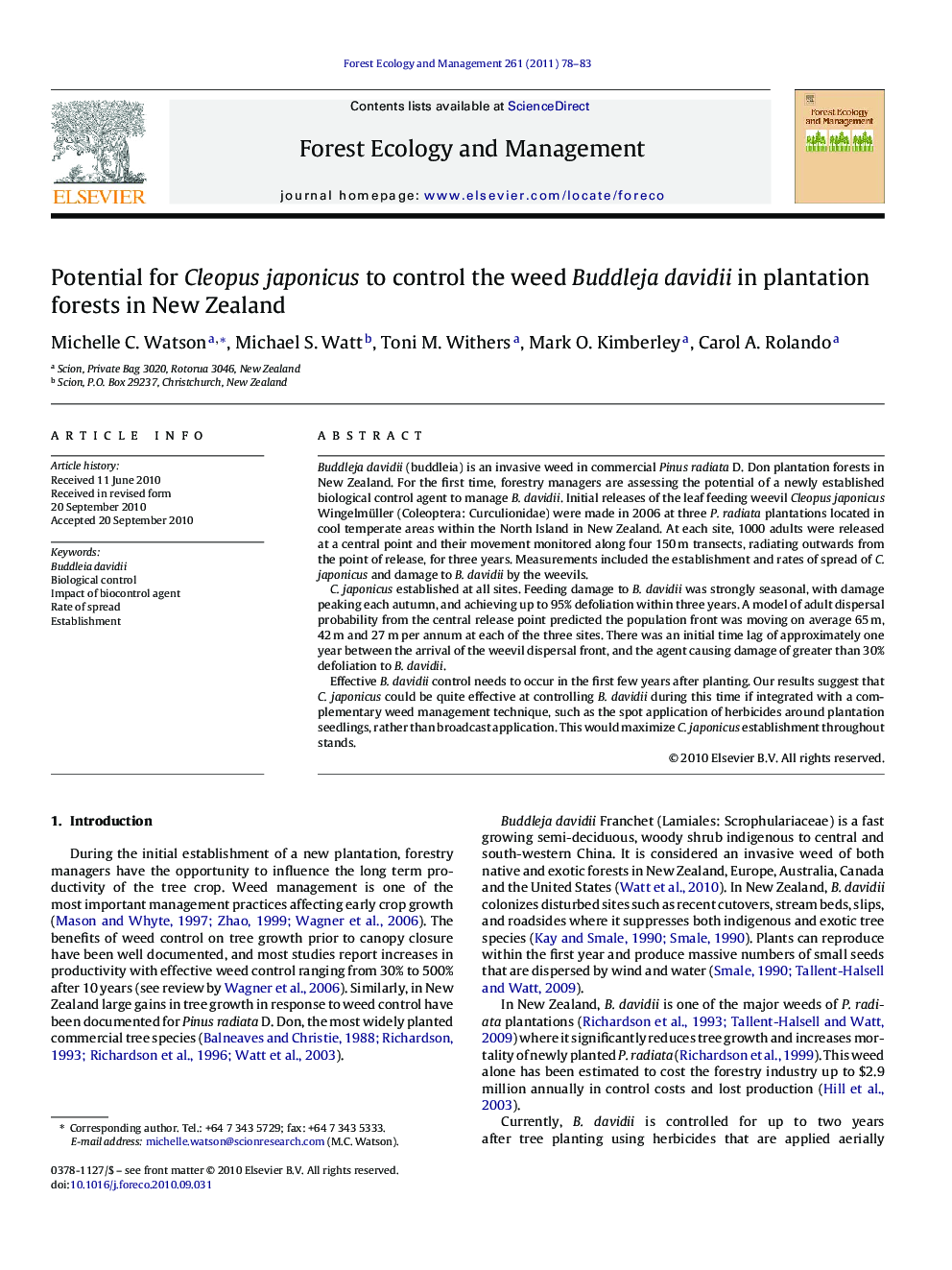| Article ID | Journal | Published Year | Pages | File Type |
|---|---|---|---|---|
| 88127 | Forest Ecology and Management | 2011 | 6 Pages |
Buddleja davidii (buddleia) is an invasive weed in commercial Pinus radiata D. Don plantation forests in New Zealand. For the first time, forestry managers are assessing the potential of a newly established biological control agent to manage B. davidii. Initial releases of the leaf feeding weevil Cleopus japonicus Wingelmüller (Coleoptera: Curculionidae) were made in 2006 at three P. radiata plantations located in cool temperate areas within the North Island in New Zealand. At each site, 1000 adults were released at a central point and their movement monitored along four 150 m transects, radiating outwards from the point of release, for three years. Measurements included the establishment and rates of spread of C. japonicus and damage to B. davidii by the weevils.C. japonicus established at all sites. Feeding damage to B. davidii was strongly seasonal, with damage peaking each autumn, and achieving up to 95% defoliation within three years. A model of adult dispersal probability from the central release point predicted the population front was moving on average 65 m, 42 m and 27 m per annum at each of the three sites. There was an initial time lag of approximately one year between the arrival of the weevil dispersal front, and the agent causing damage of greater than 30% defoliation to B. davidii.Effective B. davidii control needs to occur in the first few years after planting. Our results suggest that C. japonicus could be quite effective at controlling B. davidii during this time if integrated with a complementary weed management technique, such as the spot application of herbicides around plantation seedlings, rather than broadcast application. This would maximize C. japonicus establishment throughout stands.
Research highlights▶ The biological control agent for Buddleja davidii, Cleopus japonicus, established at all sites. ▶ Lag of ca. 1 year from arrival of dispersal front, and damage > 30% to B. davidii. ▶ C. japonicus may effectively control B. davidii during plantation establishment.
